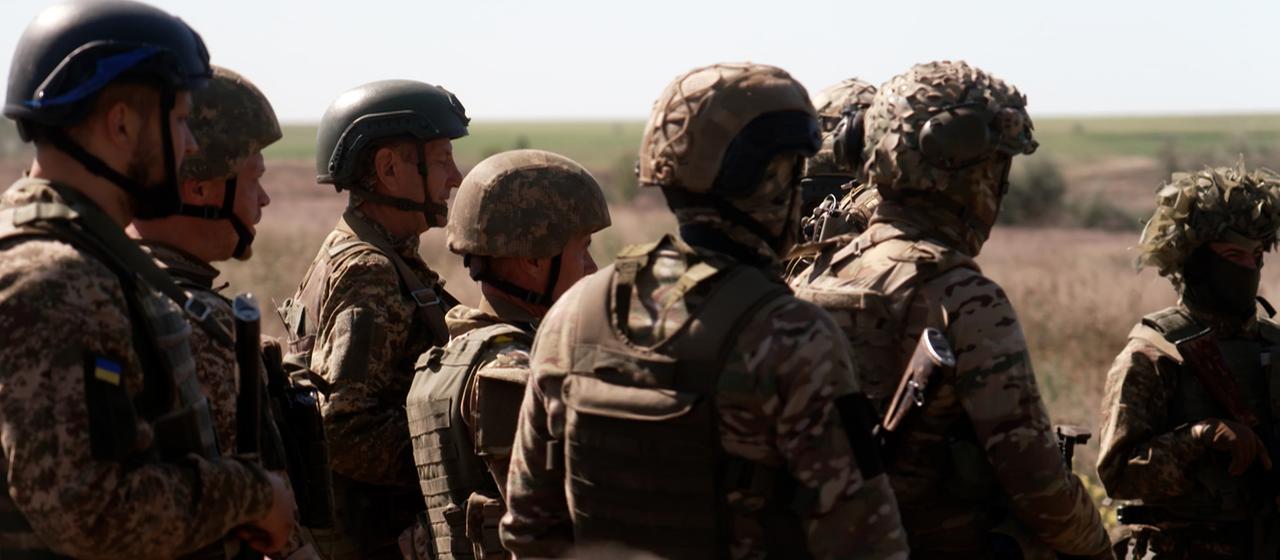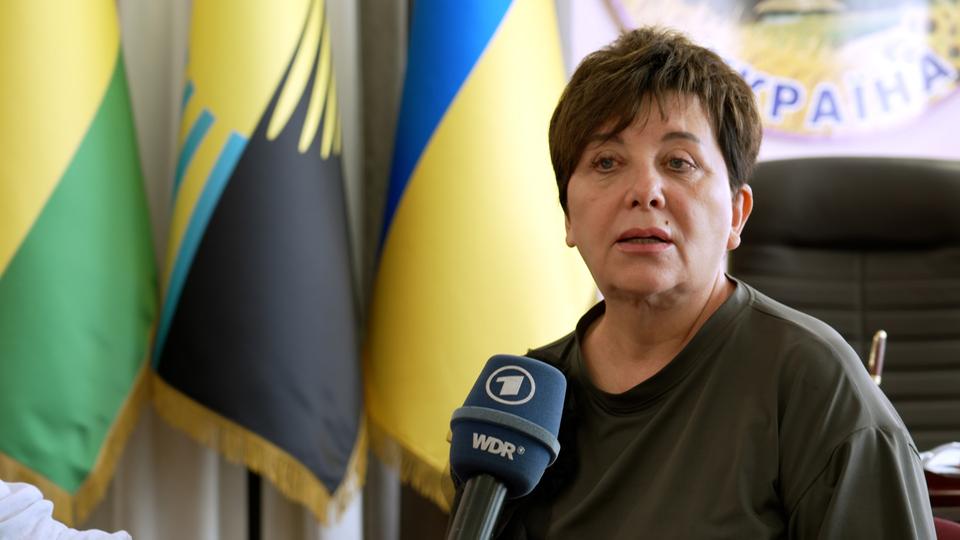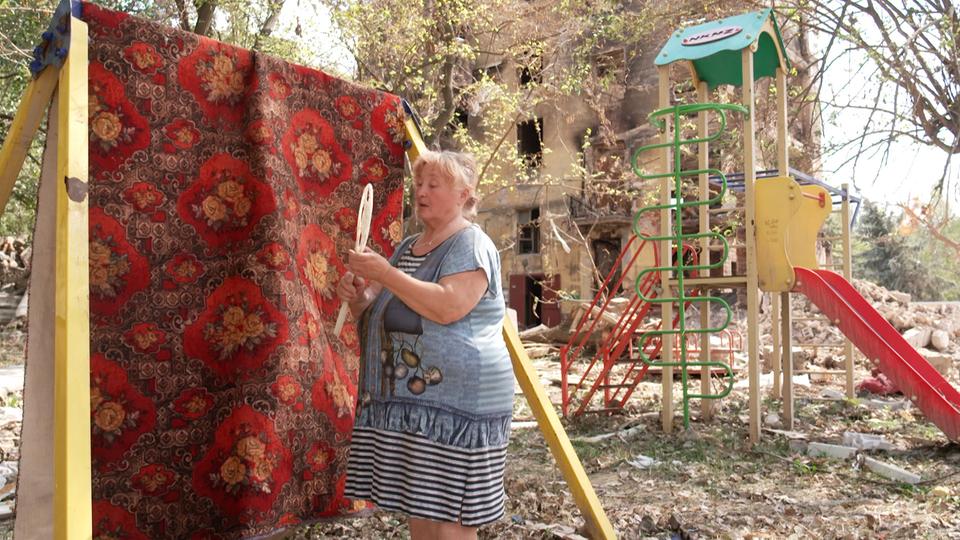
Despite all diplomatic efforts, Russia continues its war: soldiers are being targeted during training – and the civilian population also lives in constant fear of the next drone attack.
Pokrovsk, Oleksandrivka, Kramatorsk – names of places that have been synonymous with fierce Russian attacks for months. Places in eastern Ukraine. These are the places where it will be decided whether Russian troops advance further and whether they bring the entire Donetsk region under their control.
While high-ranking heads of state and government are negotiating thousands of kilometers away, people here are asking themselves: What does this have to do with us? Are these talks actually achieving anything—or will they ultimately exacerbate the situation?
Training in the shadow of drones
In a field not far from the front, soldiers are training for their deployment. The sounds of battle echo above them—gunshots, orders, explosions."Everything has changed. We used to look at the ground while walking; now we constantly have to look up," says a soldier who calls himself Tsypa. He's referring to Russian attack drones that now constantly circle the sky—occasionally even over training grounds.
Technology is developing rapidly. Russia is using glide bombs and reconnaissance drones, and is conducting targeted attacks on Ukrainian soldiers' training grounds. Kalyna, an instructor in the Ukrainian army, explains how he is trying to teach soldiers the essentials for survival on the front lines:"Running, hiding, camouflage—they have to develop techniques for that."
Many of the men were drafted just a few weeks ago. None of them volunteered. This is one of the reasons why psychologists accompany the exercises to stabilize the soldiers mentally. Andriy, 46, says openly:"I didn't want to fight; it's not my thing. But the enemy attacked, Putin attacked. Now we have to defend our country."
Workshop under the trees
A few kilometers away, not far from the fiercely contested city of Pokrovsk, hidden in a forest, hammers pound on metal. Mykola and his team are working in a secret workshop. Their mission: repairing damaged vehicles and equipping them with improvised protective devices."Drones are constantly in the air, sometimes three or four crash into a car," he reports. One vehicle they brought in was"riddled with shrapnel."
Since the Russian attacks have intensified, the men have been working virtually around the clock. They are installing jammers, stretching nets over vehicles, and welding metal plates.
"It's about responsibility for people," says Mykola, who leads the team here."We have to do everything we can to ensure our soldiers survive this meat grinder." By "meat grinder," he means the dangerous roads around Pokrovsk, where Russian drones, glide bombs, and artillery attack almost daily.
Skepticism about negotiations
The soldiers hear about the meetings between Putin and Trump, hear about the distant negotiations. But this doesn't inspire hope in most of them."Are you ready to give up half of your house to live in peace?" Mykola asks rhetorically."I'm not ready."
For him, one thing is clear: after all the sacrifices, there can be no compromise at the expense of Ukrainian land and soil.
Driver Serhiy shares this view:"This land belongs to us. If the criminals aren't punished, then something is wrong with the world." He fears that otherwise, his son will have to fight someday. Therefore, he continues to drive to the front, bringing food and weapons, even at the risk of his life.
Constant drone attacks
Oleksandrivka, a town not far from the front line. Russian drones are constantly attacking here, too. They destroy, injure, and kill."One night was particularly bad; a drone flew directly down, the noise was horrible. The children all woke up, and we ran out into the hallway," recalls Daria, a mother of two.
Many families have left their homes, but some remain - out of defiance, out of hope, or simply because they lack the financial means to leave their homeland and start a new life.
Iryna, who works for the city cleaning service, says:"I only hope for peace because I have a child and a job. You see, we're still working."
Mayor Lyudmyla Borysevych describes the situation soberly: "Our residents constantly feel the explosions of the Shahed drones. Within a month and a half, many buildings have been damaged. People hope that the front will not advance any further."

Kramatorsk: Everyday life with sirens
A few kilometers away in Kramatorsk, sirens wail almost daily. Rockets regularly hit the city. At the market, vendor Maryna says:"Putin will never negotiate. His goal is to destroy all of Ukraine. I've lost many friends; we had to bury some."
Blogger Maksym Hoduschko hears the impacts daily. He shakes his head at the meeting between Trump and Putin in Alaska:"If Putin wanted peace, there would be silence here." For him, it's clear: concessions will achieve nothing; only a Russian withdrawal could end the war.
Iryna, 64, points to her destroyed neighbor's house:"Doors and windows have been blown out. I hope they'll come to an agreement at some point. But I'm worried that other cities will suffer just as much."

Places of tornness
In Donbas, the mood is ambivalent: between the desire for peace and the certainty that Putin will not stop voluntarily."There's nothing to agree on," says one market trader."Everything will stay as it is." Others continue to hope for a ceasefire, even if only temporary.
At the same time, many people are keeping their bags packed. Some only want to flee when the fighting is right on their doorstep, others are determined to stay – because their parents are old, because their homeland is indispensable, or because they simply don't know where to go.

